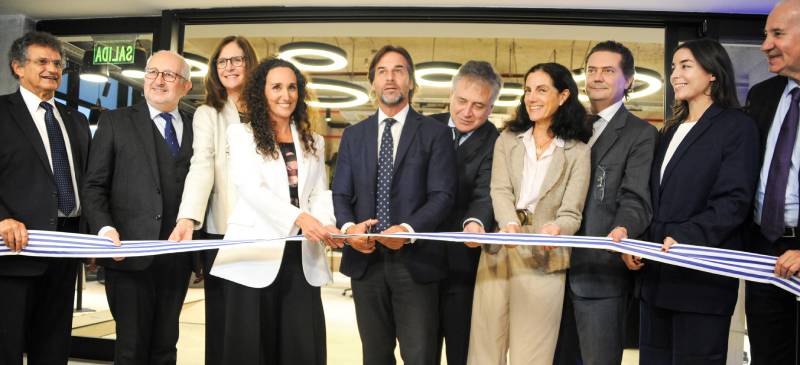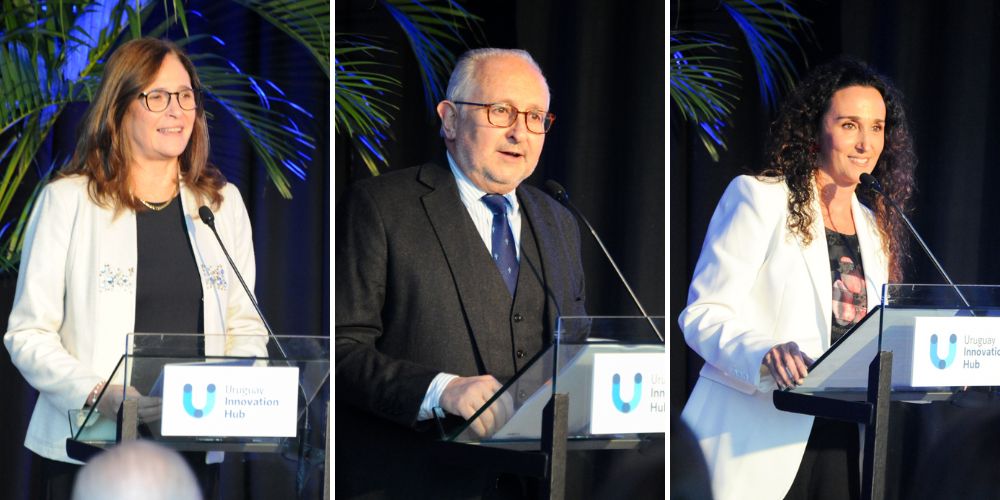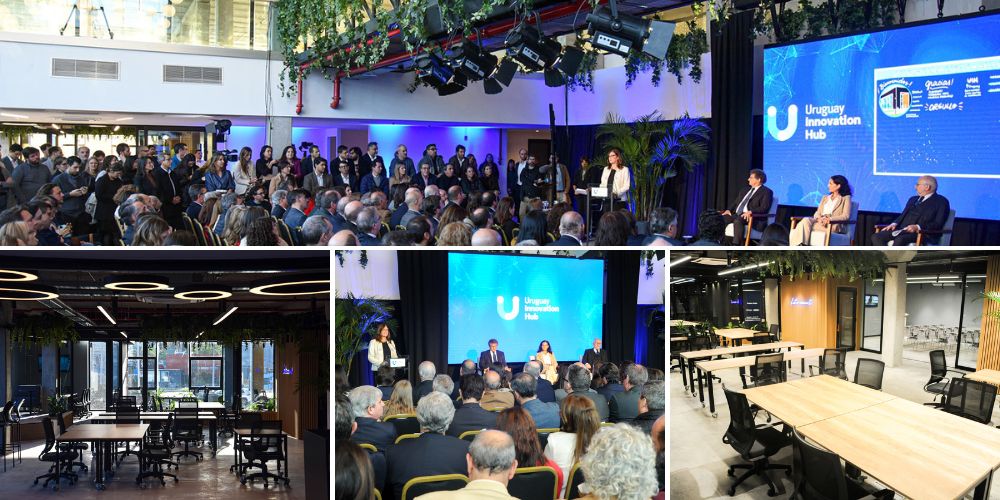- Home
- About us
- News
- Events
- EXPORT Export
-
BUY
Buy
BuyBuyFood and beverage Beef Caviar Dairy Products Fruits Healthy foods Olive oil Processed Foods Rice Sweets, honey and jams Wines ICT Software development Technology products
- INVEST Invest
- COUNTRY BRAND Country Brand
-
INFORMATION CENTER
Information center
InformationCenterInformationCenterReports Country reports Department reports Foreign trade reports Product-Destination worksheet Sectors reports Work documentsStatistical information Classification Uruguay XXI Exports Imports Innovative National Effort Macroeconomic Monitor Tools Buyers Exporters Investors
- Contact
-
Languages
Uruguayan Government Inaugurates Innovation Campus
With the new Uruguay Innovation Hub’s center, the country positions itself as a regional benchmark in technology and entrepreneurship
Share:

Uruguayan authorities have inaugurated an innovation campus in the LATU Innovation Park. This center, fundamental to the strategy of the government’s Uruguay Innovation Hub program, aims to become an epicenter of synergy and collaboration, promoting innovation and entrepreneurship in the country.
With the President of the Republic, Luis Lacalle Pou, and other prominent national authorities present, the ceremony marked a significant milestone in Uruguay’s technological and business landscape. Among those present were Foreign Minister Omar Paganini, the Minister of Economy and Finance, Azucena Arbeleche, the Minister of Education and Culture, Pablo Da Silveira, the Minister of Industry, Energy and Mining, Elisa Facio, and the Director of Uruguay XXI, Sebastián Risso.
During her inaugural speech, Minister Facio, President of the Uruguay Innovation Hub steering committee, highlighted the project’s strategic importance. “The program was born out of our vision that innovation and technology are fundamental drivers of economic and social development based on knowledge,” she said.
The Uruguay Innovation Hub executive director, Sabrina Sauksteliskis, added that the program seeks to empower and manage Uruguay’s innovation hub. “That is, to strengthen our ventures and talents, as well as help them scale internationally, and in turn, attract more talent and ventures that complement the local ones so that from Uruguay they can work for the region and the world,” she declared.
The center will seek to foster the creation of innovative solutions that improve people’s quality of life and generate new opportunities for economic development through collaboration between entrepreneurs, researchers, companies, and the government.

Minister Facio explained that Uruguay’s strategy to position itself as an innovation hub is based on three key pillars: infrastructure, talent, and collaboration. Regarding infrastructure, the government has invested significantly in equipping the campus with state-of-the-art technology to facilitate research and development.
She also highlighted the program’s commitment to training and attracting talent by promoting educational and training programs designed to prepare Uruguayan youth for the challenges of the 21st century.
The inauguration of the campus coincides with a significant moment for Uruguay in the international arena, as the country recently acceded to the Patent Cooperation Treaty. “This is an impressive milestone for science, technology, and innovation, which puts Uruguay on the map and strengthens it as an attractive destination for innovative projects in the region and the world,” she said.
Regarding strategic sectors, Facio identified three critical areas where Uruguay has potential: biotechnology, advanced technologies, and green technologies. In biotechnology, she highlighted the diversity, local talent, and presence of important international players in the sector, who chose Uruguay to carry out their regional operations. Regarding advanced technologies or deep tech, she mentioned the relevance of areas such as artificial intelligence, blockchain, and quantum computing. “Adopting these technologies and their application in various industries can be transformative. Much of this is already being used (in our country), such as artificial intelligence applied to agriculture, our main industry,” she expressed.
She emphasized Uruguay’s commitment to energy transformation and developing clean and sustainable energy in terms of green technologies. “Uruguay already has a roadmap to implement an energy transformation, decarbonizing the most difficult sectors, such as transportation and the energy industry,” she recalled.
A Space for Innovation and Growth

The campus will house the Uruguay Innovation Hub, the startup accelerator OurCrowd, the company builder ATGen—GRIDX, a coworking space for startups, and open innovation labs such as Antel ODL and Newlab.
This space is also intended for international startups, facilitating their integration and connection with the Uruguayan ecosystem. It will also have a versatile platform for events and activities, consolidating Uruguay as a regional benchmark in technology and innovation.
The event included an enriching exchange between Maayan Schreiber, CEO of OurCrowd LATAM Labs, and Matías Peire, CEO and Co-Founder of GRIDX. Both highlighted the enthusiasm for the Uruguayan innovative ecosystem and the positive impact their organizations hope to generate in the country.
